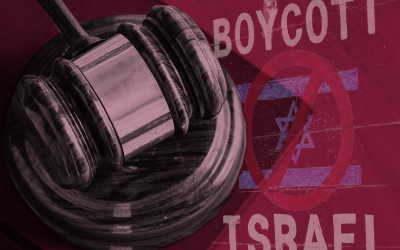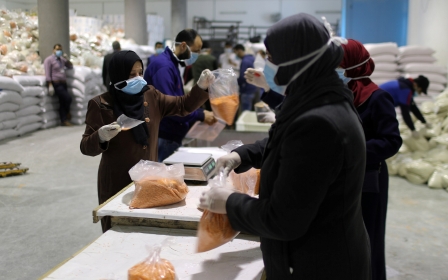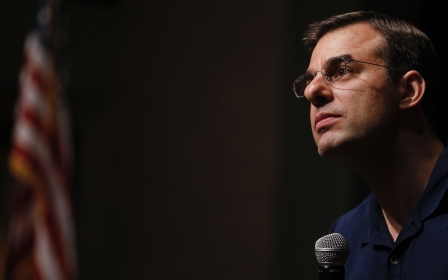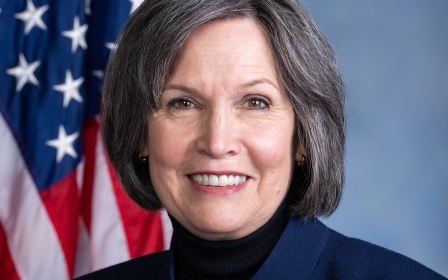Congress candidate Mckayla Wilkes: Palestine solidarity is about human rights
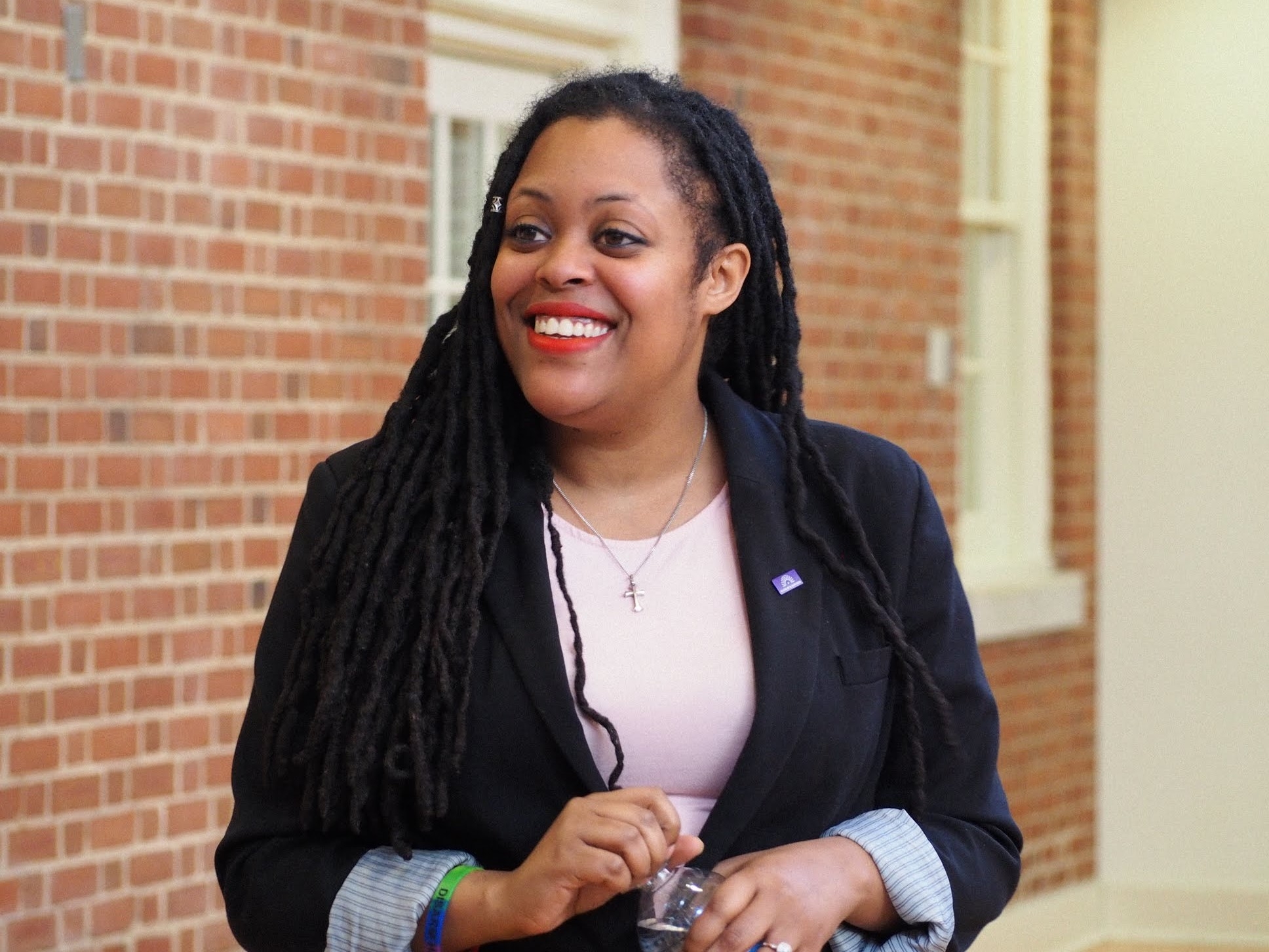
Mckayla Wilkes knows from personal experience how the injustices of the American system can impact the lives of less fortunate people. She has been arrested for not having enough money to pay traffic tickets, and she has been denied coverage for life-saving medication by her health insurance provider.
The African American mother of two is running in Maryland's diverse 5th district, which covers the south side of the state, including some Washington suburbs. And she is taking on one of the most powerful figures in the Democratic Party - House Majority Leader Steny Hoyer, who was first elected to Congress in 1981.
And while her own experiences shaped her politics, the congressional candidate is not hesitant to talk about foreign policy and Palestinian human rights when challenging one of Israel's staunchest supporters on Capitol Hill.
Wilkes is running on a platform supporting Medicare for All and the Green New Deal, but she says a sense of solidarity against injustice anywhere forms the core of her politics.
'We understand what it is like to be treated as a second-class citizen'
- Mckayla Wilkes
"From the experience of being a black person in America and how people of colour are treated in America, we understand what it is like to be treated as second-class citizens," Wilkes said. "And for me, it is 100 percent about solidarity, it is 100 percent about human rights, both over here and outside of America - about the right to housing, the rights to peace, the right to health care."
She added that the oppression against Palestinians is not acceptable.
"It's just completely unconscionable that we can sit by and watch that happen and not do anything to fix the situation except to uphold the status quo," Wilkes added.
The Maryland congressional primary will take place on Tuesday, 2 June.
On BDS
Wilkes slammed her opponent for co-sponsoring a House resolution that condemned the Boycott, Divestment and Sanctions (BDS) movement, which seeks to pressure Israel economically and politically to end its abuses against Palestinians. The measure passed with overwhelming bipartisan support last year.
She called BDS an effort to change the reality of the occupation, drawing similarities between the Palestinian movement and the Montgomery bus boycott, when African Americans refused to ride city buses in the mid-1950s to reject racial segregation.
"If we want to change things, then why not support people being able to peacefully protest," she said.
"And that's something that we even practiced in the United States with the bus boycott of Alabama back when we were protesting segregation, so why would we not allow others to exercise the same rights that we've been given?"
Wilkes said she supports a "real" two-state solution, where Palestinians are granted their own state with full sovereignty or a bi-national one-state solution where Israelis and Palestinians have equal rights and citizenship.
"The biggest thing is that we support a peaceful approach to foreign policy, one that cooperates with others, that is anti-interventionist, that doesn't carry out acts of war if we haven't declared war," she said.
If elected, Wilkes vowed to boycott conferences of the pro-Israel lobby AIPAC, to oppose extrajudicial drone strikes and support the repeal of the 2001 Authorization for Use of Military Force (AUMF), which granted the executive branch broad war powers.
'Very confident'
Despite running against one of the best-financed and most well-connected legislators in the country, Wilkes says she is hopeful about her chances.
Her campaign has generated enthusiasm in leftist circles and she has raised almost $300,000 from small donations, without receiving any money from corporations or political action committees.
Although relatively impressive, her fundraising is dwarfed by Hoyer's more than $3m. Still, the number two Democrat in the House of Representatives has few donations of less than $250, with many reaching the legal limit of $2,800, according to Federal Election Commission filings.
In fact, Wilkes says Hoyer's "ties to his campaign contributions" is part of what motivated her to run for Congress.
"I chose to run for Congress because that is where I needed to be to make transformative change, and it was with a sense of urgency," she said.
Wilkes told MEE that she is often asked why she did not start at the local level, and answers that her candidacy is not a career move; she is moved by a need for "more progressive voices on the federal level."
Defeating Hoyer seems like a long shot, but there is a recent precedent. In 2016, Alexandria Ocasio Cortez - a young challenger with virtually no political experience - ousted Joe Crowley, who was the chair of the Democratic Caucus and one of the most powerful lawmakers in the country.
Wilkes said her campaign strategy is to speak to as many people as possible. Despite the restrictions of in-person contact amid the coronavirus, she is reaching people through phone banking.
"I'm very confident. I will say I am more positive this week than throughout this entire campaign because we've been killing it - just seeing the excitement of the people. I mean, just yesterday, we raised $16,000 in one day," she says.
"We were able to start early despite the pandemic, so we had a chance to knock on thousands of doors and speak with hundreds and thousands of people in the district."
At a time of increased racial tensions and bigoted rhetoric from the administration of President Donald Trump, Wilkes stressed the need to elect more people of colour to Congress, while also noting that there are no women among Maryland's six House members and two senators.
"Our district has never been represented by a black woman," she said. "We need a more diverse Congress, and we need a more diverse delegation in Maryland because we have the experiences of the people... specifically at a time when we are seeing disparities across the board."
Middle East Eye propose une couverture et une analyse indépendantes et incomparables du Moyen-Orient, de l’Afrique du Nord et d’autres régions du monde. Pour en savoir plus sur la reprise de ce contenu et les frais qui s’appliquent, veuillez remplir ce formulaire [en anglais]. Pour en savoir plus sur MEE, cliquez ici [en anglais].



